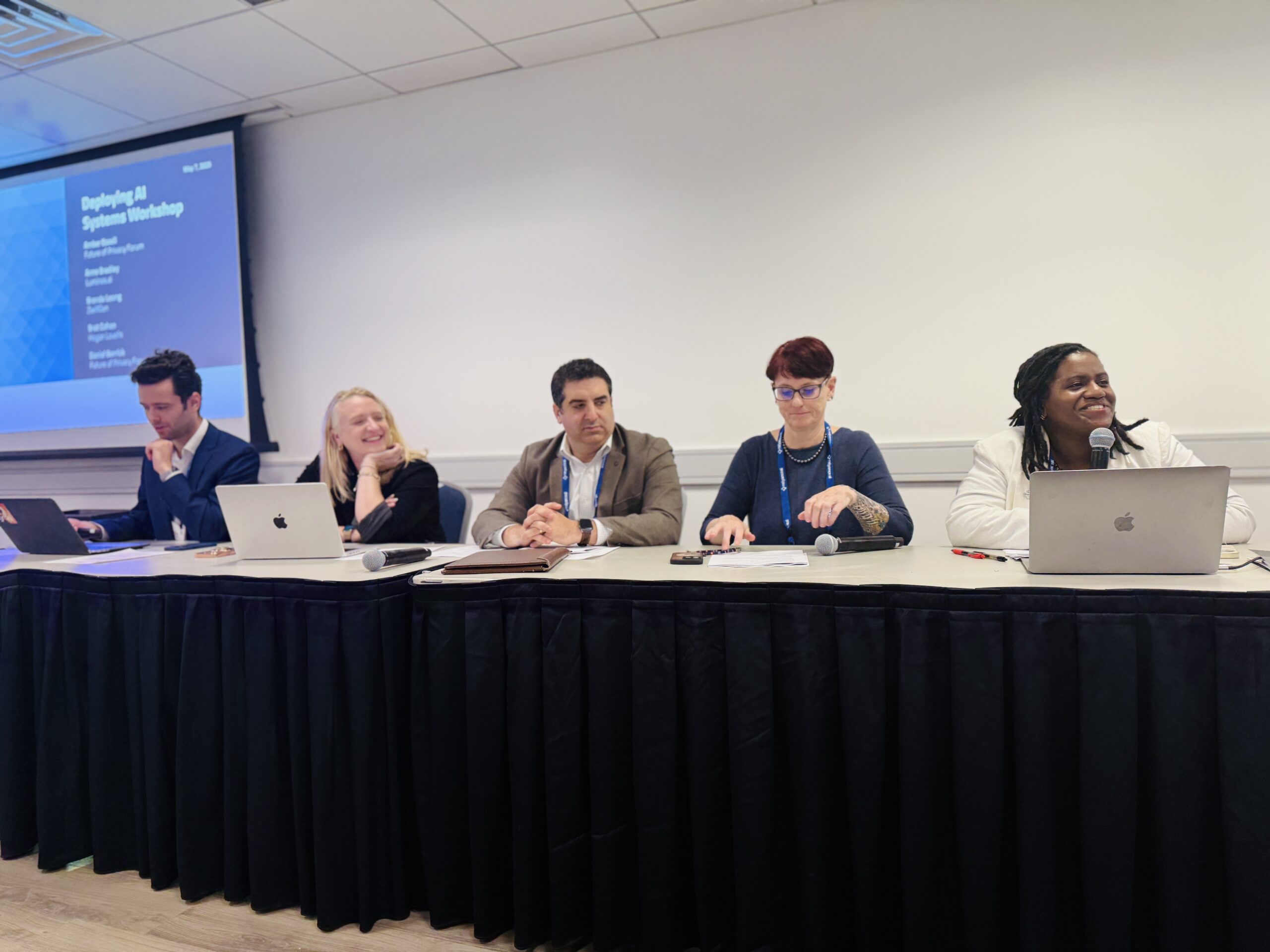Recent
The Connecticut Data Privacy Act Gets an Overhaul (Again)
Co-Authored by Gia Kim, FPF U.S. Policy Intern On June 25, Governor Ned Lamont signed SB 1295, amending the Connecticut Data Privacy Act (CTDPA). True to its namesake as the “Land of Steady Habits,” Connecticut is developing the habit of amending the CTDPA. Connecticut has long been ahead of the curve, especially when it comes […]
Meet Bianca-Ioana Marcu, FPF Europe Managing Director
FPF is pleased to welcome our colleague Bianca-Ioana Marcu to her new role as Managing Director of FPF Europe. With extensive experience in privacy and data protection, she takes on this responsibility at a pivotal moment for digital regulation in Europe. In this blog, we will explore her perspectives on the evolving privacy landscape, her […]
Annual DC Privacy Forum: Convening Top Voices in Governance in the Digital Age
FPF hosted its second annual DC Privacy Forum: Governance for Digital Leadership and Innovation on Wednesday, June 11. Staying true to the theme, this year’s forum convened key government, civil society, academic, and corporate privacy leaders for a day of critical discussions on privacy and AI policy. Gathering an audience of over 250 leaders from […]
Future of Privacy Forum Announces Annual Privacy and AI Leadership Awards
New internship program established in honor of former FPF staff Washington, D.C. – June 12, 2025 — The Future of Privacy Forum (FPF), a global non-profit focused on data protection, AI and emerging technologies, announced the recipients of the 2025 FPF Achievement Awards, honoring exceptional contributors to AI and privacy leadership in the public and […]
Brazil’s ANPD Preliminary Study on Generative AI highlights the dual nature of data protection law: balancing rights with technological innovation
Brazil’s Autoridade Nacional de Proteção de Dados (“ANPD”) Technology and Research Unit (“CGTP”) released the preliminary study Inteligência Artificial Generativa (“Preliminary Study on GenAI”, in Portuguese) as part of its Technological Radar series, on November 29, 2024. A short English version of the study was also released by the agency in December 2024. This analysis […]
Cross-Border Data Flows in Africa: Examining Policy Approaches and Pathways to Regulatory Interoperability
Cross-border data flows are critical to Africa’s digital economy, enabling trade, innovation, and access to continental and global markets. As the drive towards data-driven technologies among businesses and governments grows, the ability to transfer personal data across borders efficiently and securely has become a key policy concern on the continent, a position echoed by the […]
FPF Unveils Paper on State Data Minimization Trends
Today, the Future of Privacy Forum (FPF) published a new paper—Data Minimization’s Substantive Turn: Key Questions & Operational Challenges Posed by New State Privacy Legislation. Data minimization is a bedrock principle of privacy and data protection law, with origins in the Fair Information Practice Principles (FIPPs) and the Privacy Act of 1974. At a high […]
Vermont and Nebraska: Diverging Experiments in State Age-Appropriate Design Codes
In May 2025, Nebraska and Vermont passed Age-Appropriate Design Code Acts (AADCs), continuing the bipartisan trend of states advancing protections for youth online. While these new bills arrived within the same week and share both a common name and general purpose, their scope, applicability, and substance take two very different approaches to a common goal: […]
FPF Experts Take The Stage at the 2025 IAPP Global Privacy Summit
By FPF Communications Intern Celeste Valentino Earlier this month, FPF participated at the IAPP’s annual Global Privacy Summit (GPS) at the Convention Center in Washington, D.C. The Summit convened top privacy professionals for a week of expert workshops, engaging panel discussions, and exciting networking opportunities on issues ranging from understanding U.S. state and global privacy […]
Lessons Learned from FPF “Deploying AI Systems” Workshop
On May 7, 2025, the Future of Privacy Forum (FPF) hosted a “Deploying AI Systems” workshop at the Privacy + Security Academy’s Spring Academy, which took place at The George Washington University in Washington, DC. Workshop participants included students and privacy lawyers from firms, companies, data protection authorities, and regulatory agencies around the world. The […]









